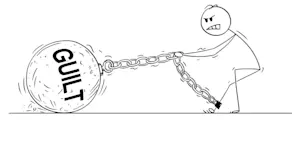What Makes This Word Tick
"Kvetch" is one of those delightful imports from Yiddish that adds a bit of flavor to spoken English. It's a verb that means to complain incessantly and chronically, often with a humorous or endearing undertone. Picture a friend who's always lamenting the weather, but you find it charming and wouldn't have it any other way.
If Kvetch Were a Person…
Imagine kvetch as your lovable but slightly grumpy friend who can’t help but find faults with even the most delightful situations. They'd be the type to find the one cloud on an otherwise sunny day but, deep down, they add character to your group with their endearing moaning.
How This Word Has Changed Over Time
Originally, kvetch was a more serious term, introduced into English by Jewish communities who spoke Yiddish. Over time, it’s retained a playful vibe, now usually used to describe lighthearted grumbling rather than full-blown complaints — think of it as "complain lite."
Old Sayings and Proverbs That Use Kvetch
"Kvetching never baked a loaf of bread." Here's a bit of wisdom suggesting that while complaining can be a pastime, it doesn’t solve problems. It's a gentle reminder that a little action goes a longer way than a lot of groaning.
Surprising Facts About Kvetch
Though kvetch may sound quintessentially New York, it’s a loanword from Yiddish, which is a Germanic language historically spoken by Ashkenazi Jews. It’s interesting to note that Yiddish words have peppered the English language, especially in urban areas with Jewish communities.
Out and About With This Word
Kvetch has found its home in colloquial English, especially in places like New York City where Yiddish influences abound. You might spot it in conversation among writers, comedians, and anyone with a flair for the dramatic when voicing frustrations.
Pop Culture Moments Where Kvetch Was Used
Larry David’s character in "Curb Your Enthusiasm" is a master kvetcher. He has elevated the art of complaining to comedic sophistication, making kvetch almost synonymous with his brand of humor.
The Word in Literature
Kvetch holds a special place in Jewish-American literature. It can be found in the works of authors like Philip Roth, who often use it to highlight the cultural tapestry of American cities where Jewish life and its linguistic quirks are woven into everyday life.
Moments in History with Kvetch
Picture the Roaring Twenties in New York. While many celebrated the economic boom, there were those who kvetched about the perpetual noise of the growing metropolis. Their grumbling was as much a part of history as the jazz flowing from every speakeasy.
This Word Around the World
In Hebrew-speaking Israel, kvetch is understood without translation. But in Germany, its root language, the term doesn’t carry the same cultural baggage and humor as it does in English.
Where Does It Come From?
Kvetch comes from the Yiddish קװעטשן (kvetchn), which originally meant "to squeeze" or "to press." Isn't it wonderful how words evolve and acquire entirely new meanings as they travel across languages and cultures?
How People Misuse This Word
Interestingly, some might use kvetch to describe serious grievances instead of lighthearted grumbling. This can lead to misunderstandings, as it loses its playful nuance when overused in overly serious contexts.
Words It’s Often Confused With
Complain: While kvetch has a humorous connotation, complain is more neutral or negative.
Whine: Whining implies a higher-pitched, more annoying quality than kvetching.
Grouse: Currently more British, it conveys similar incessant grumbling but without the cultural warmth.
Additional Synonyms and Antonyms
Synonyms you might enjoy using: gripe, whine, moan. For the opposite, try rejoice, praise, or compliment.
Want to Try It Out in a Sentence?
“Every time it rains, Emma starts to kvetch about her frizzy hair, but we love her for it nonetheless.”
















